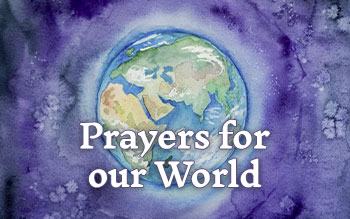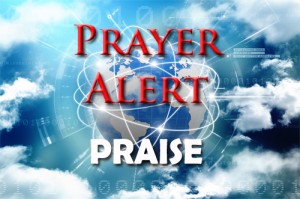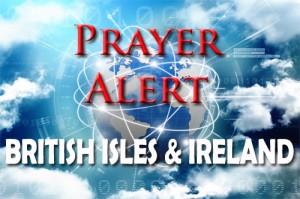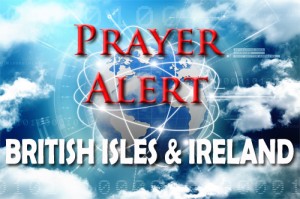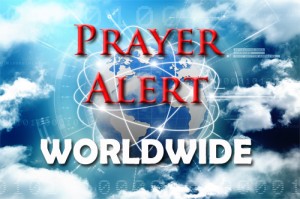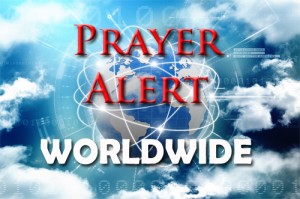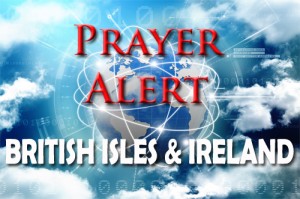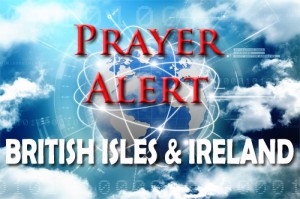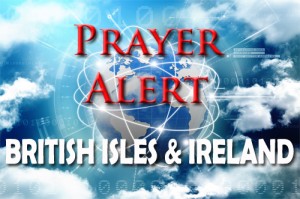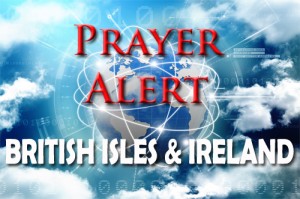Displaying items by tag: church
Bulgaria Revises Proposed Church Restrictions
Bulgaria Revises Proposed Restrictions on Churches
Update: After considering laws to halt training, foreign funding, and missionary outreach, the European nation eases its approach.
Following an outcry from evangelicals and other faith groups, Bulgaria opted to revise a controversial proposal to restrict religious activity before putting it up for another parliamentary vote.
The initial draft amendments to its Religious Denomination Act would have kept members of minority faiths, like Protestants, from operating seminaries, holding activities outside church, and obtaining legal status. It also regulated foreign missionaries and funding. (See CT’s initial reporting below.)
The revised version adjusts the formula for state subsidies so that groups beyond the Bulgarian Orthodox and Muslims—which together comprise 95 percent of the population—are eligible, the Sofia Globereported. The adjustments follow a round of feedback from religious groups and discussion between two political parties in the legislature, after a November 16 deadline.
The updated law also would allow greater freedom to foreign missionaries than the first proposal; they could preach in the country as short-term residents or as visitors coming with advance notification. The new amendment also does away with a ban on anonymous donations by foreign groups.
As of Tuesday, the parliament had not yet voted on the restrictions, according to the Baptist Standard. TeodorOprenov, a Sofia pastor and leader in the Baptist Union of Bulgaria, told the site that evangelicals expected “some softening” after the meetings.
Thousands of Christians have been gathering before the parliament building each Sunday to protest and pray against the restrictions. They plan to continue rallying this Sunday, November 25, Oprenov said.
Original post (November 16): A controversial new law before the Bulgarian Parliament would keep Protestants and other minority faiths from freely worshiping, teaching, evangelizing, and tithing in the southeastern European nation.
Today’s vote marks the legislature’s second hearing for amendments to Bulgaria’s religious denominations act, which were initially approved October 4.
Over the past month, leaders from all faith groups in the former communist country have condemned the proposed additions, which prevent minority religions from offering clergy training, restrict worship services to designated sites, and place new regulations on international missionaries and giving.
“Should the law pass, existing theological seminaries are at risk of shutting down, evangelical church pastors may no longer be able to conduct worship services, and the acceptance and use of donations will be subject to government approval and limitations,” stated the World Evangelical Alliance, which has joined with the Bulgarian Evangelical Alliance to oppose the legislation.
About 2,000 Christians gathered at the Bulgarian capital, Sofia, on Sunday to pray and protest against the proposed amendments, The Baptist Standard reported, and they have continued smaller demonstrations in hopes that the law will be rejected.
Evangelical Protestants make up less than 1 percent of the population in Bulgaria, where about 85 percent of citizens consider themselves Eastern Orthodox and about 10 percent are Muslim. Because of their small size, Protestants—along with Catholics, Jews, and others—fail to meet the threshold for certain government recognition under the draft law, which legislators say is meant to protect against foreign threats but religious groups see as a threat to their own religious freedom.
Christian churches across the country—including the United Methodist Church, Bulgarian Baptist Union, Bulgarian Evangelical Alliance, Catholic Church in Bulgaria, and National Alliance United Churches of God—each released statements against the proposal, reportedVladyRaichinov, an evangelical leader and pastor in Sofia.
The European magazine Evangelical Focus summarizes the biggest concerns with the amendments:
Only Bulgarian citizens will be able to carry out liturgical activity if they have had theological training in Bulgaria or their foreign school is approved.
Only Eastern Orthodox and Muslim believers will be able to train clergy and run schools.
A foreigner will only be able to preach if doing so with a Bulgarian ordained minister.
Foreign donations will only be allowed for building construction or social aid and will need government approval. No salaries of pastors, for example, could be paid from abroad.
No religious activities can take place outside of buildings designated for them.
Only religious groups with +300 people will have legal status.
Two years ago, Russia adopted similar restrictions on missionary activity and evangelism, also citing national security concerns. The 2016 “Yarovaya law” bars the non-Orthodox from sharing their faith outside of government-recognized church buildings.
Though only about 60,000 Protestants live in Bulgaria, according to 2011 census figures, the population has received vocal support from evangelical leaders in Europe and beyond.
European Baptist Federation general secretary Anthony Peck and Baptist World Alliance general secretary Elijah M. Brown wrote Bulgarian Prime Minister BoyokovBorissov with concerns that “… the implementation of this law could lead to unintended restrictions on religious freedom and the direct persecution of churches and individuals of faith.”
“These efforts to interfere with theological education, restrict missionary and worship activity, and control international donations in fact wrongly extends government power into the internal life of Bulgarian religious communities,” they said. “No state, we believe, should be in a position to control the training and activities of ecclesiastic ministers, nor should a state favor one faith expression over another.”
The proposed law, opponents worry, would represent a step backwards for their country, which was under Communist rule until 1990.
“The legislative proposal is a sad reminder of a bygone Communist past, which we believed would no longer return,” Christo Proykov, Catholic bishop of Sofia and president of the Bulgarian Bishops, told SIR.
Bulgarian media report that larger religious groups have likewise condemned the restrictions. Orthodox bishops stated that the amendments are “ambiguous and will fail to deliver the expected results. They must be seriously reconsidered to shun any doubt on the consolidated, positive cooperation between the State and the Church.” Major Muslim leaders also met with the prime minister to object to the law, including the provisions against smaller faiths.
Protestants have had to fight for their place in Bulgaria, from being driven underground during Communist rule to fighting back against what Christianity Today called “a swelling wave of religious intolerance that includes government restrictions, vitriolic media attacks, and even violent assaults” in the 1990s.
A year before the 2002 religious denominations act was adopted in Bulgaria, Sofia-based religious liberty lawyer Viktor Kostov wrote for CT about the struggle to grow a healthy church in a country “stuck in a wounded culture” and “haunted by totalitarianism.”
Pray: That the full freedoms of the churches and missionaries are protected.
Pray: That this legislation will be overturned.
Pray: For the protection of those who are campaigning and representing the church on these important issues at the highest level.
Pray:for the Spirit of Antichrist to be bound.
Pray: for Bulgarian Christians to have a voice, and to be listened to.
Pray: for better relations between the Bulgarian Church and Government.
Couple’s 100 years of service
A couple have been recognised for giving more than a hundred years of service to the Church of Scotland between them. Don and Alice Barrie have played key roles at a church in South Lanarkshire for 51 and 60 years respectively. On 4 November their church presented them with long service awards from the moderator of the CoS general assembly, at a special surprise party. Alice’s father had insisted that she take music lessons from an early age; she took over as church organist at the age of 13 and has never looked back! Don became a church elder in 1967, and served as treasurer. As well as their church duties, the couple successfully ran a farm and raised five children.Their minister, Mike Fucella, said: ‘Church in a rural situation like ours can at times be frustrating, with very few people to do a great deal of work. Don and Alice deserve a big thank you. They have served with cheerfulness, often willing to try new things - open to the future God has in store for us. Without their partnership in the Gospel, I would find things very difficult indeed.’
Christmas comes early at Lambeth
Lambeth Palace was transformed on 13 November when the front of the building was lit up with giant stars. This was part of the Church of England's new campaign, #FollowTheStar, which aims to encourage people to attend churches over Christmas. The Archbishop of Canterbury, who led the event, said: ‘Christmas, for some, is a wonderful time - family, noise, friends and fun. For others it is isolated, or there are arguments; it just varies widely. #FollowTheStar is celebrating the fact that at the centre of Christmas it is Jesus who brings joy, healing hope and love, whatever situation you are in, and inviting others to share in that love. If you are a Christian, you might think about inviting someone to come to church with you. Church and a meal would be even better!’ Thousands of services and events will be taking place in churches all over the country in the run-up to Christmas.
Bishop challenges Government on climate change
Following a report by a UN panel (see article ‘New UN report on climate change’ in world section), the Bishop of Salisbury said that the evidence shows that climate change risks are now critical. Ours is the first generation to know and understand this, and probably the last to be able to do something meaningful towards climate justice. ‘We have a narrow window now to act if we are to protect God’s creation for generations to come.’ He challenged the Government to lead in this change. ‘Building on the ten-year anniversary of the Climate Change Act, an ambitious UK Government would seek to be a world leader by committing to a target of net zero emissions by 2050.’ Christian Aid reported recently that major cities in the world including Houston, Shanghai, Jakarta, and London are in danger of being flooded if sea levels continue to rise at the current rate.
China: Vatican deal
The Vatican and China have signed a provisional agreement to allow jointly-approved Catholic bishops in China for the first time. Some say it is a significant step towards re-establishing diplomatic relations between the two countries. But critics ask why the church, historically a defender of human rights and Christian values, would willingly join forces with the increasingly authoritarian atheist Chinese government. The agreement will allow the Holy See and the Chinese Patriotic Catholic Association to approve jointly the appointment of bishops in China. It comes at a time when religious persecution is escalating after the Chinese government issued new regulations forcing churches to display the national flag and the president’s portrait, while at the same time removing crosses from buildings. See
Cuba: same-sex marriage
Cuba’s national assembly is considering changes to the 1976 constitution. A draft new constitution recognises private property and opens the door to same-sex marriage. In July five evangelical churches in Cuba spoke out their opposition to same-sex marriage because the ideology of gender is totally foreign to Cuban culture or ‘the historic leaders of the Revolution.’ They explained their position in a statement posted on social networks. The five denominations do not belong to the government-approved Cuban Council of Churches. Evangelical churches in Cuba have experienced rapid growth since the government's religious opening up in the 1990s. They now have hundreds of ‘home temples’ spread around the island. See:
Visitor’s view of church
Ship of Fools have Mystery Worshippers who visit different churches and denominations with a variety of worship styles and congregation size. They report on what the experience was like and whether they would consider going back. One Mystery Worshipper reported feeling like 'the invisible man', and ‘extremely lonely’. Many reviews noted the only welcome is a quick greeting from someone distributing service sheets. One actually felt bullied by pushy congregation members ‘trying to get me to sign things and buy things’. Mystery Worshippers give us an insight into what it feels like to attend church if you have never been before. People 'like us' are often more easily greeted and assimilated, but people who don’t quite fit can end up invisible and lonely. Alarmingly, one church ‘welcomer’ who stood by the door throughout the service was asked who might feel the most left out. She smiled and replied, 'I think that would be me.'
Normalising LGBTQ+
On 3 and 4 July, the BBC aired ten news topics promoting LGBTQ+ on their website. Twice last month BBC Radio Four Sunday programme interviewed a woman who had been an evangelical and then changed her beliefs to become a homosexual. LGBTQ+ people now make up a weighty percentage of BBC staff and their influence is seen more and more in programmes and reporting. Quiz shows, soaps, documentaries and entertainment programmes usually have a LGBTQ+ representative. A Christian lady who struggled with her sexuality told her story of how she was counselled by a liberal theologian who helped her to ‘read the Bible in a different way’ so she could become LGBTQ+. She said she had since talked with Archbishop Justin Welby who encouraged her to apply for ordination, saying she would be just the kind of clergy he wants to see in the Church of England. So the state broadcasting service and the state Church promote LGBTQ+ agendas. see
Church, climate change and petrochemicals
Investors, including the Church of England, are demanding that big oil companies take more concrete action to curb global warming. This week the Church Commissioners, who are Shell shareholders, said they would like to see ‘targets that are firmer, creating the necessary internal and external accountabilities, providing a clear impetus for action. Having a target provides us with the clarity we need to have an informed discussion with Shell’s board members about your response to the transition to a low carbon economy.’ They added, ‘We recognise that companies have been reluctant to set targets, expressing concern that they might constrain their ability to act and to take advantage of opportunities as they emerge. We do not agree with this argument.’ Last year Shell set a climate ambition, but did not state specific targets. See also
Sexual abuse in institutions
Institutions like the Church are putting their reputations ahead of victims of child sexual abuse, said an interim report from the Independent Inquiry into Child Sexual Abuse on 25 April. They examined 21 British institutions, including the Church of England and the Roman Catholic Church. Religious institutions were the third largest group of abusers, after schools and children's homes. When it came to the effect on victims' faith, the report said, ‘Victims and survivors may question their religion and spiritual beliefs, particularly where the perpetrator was connected to their religion or faith. They may also use religion and faith as a coping mechanism for resilience and recovery.’ The CofE's deputy safeguarding bishop welcomed the report and said, ‘As a Church we will be studying the report and the panel's recommendations carefully, particularly those which suggest specific changes to help us as an institution to give children better protection from sexual abuse.’
